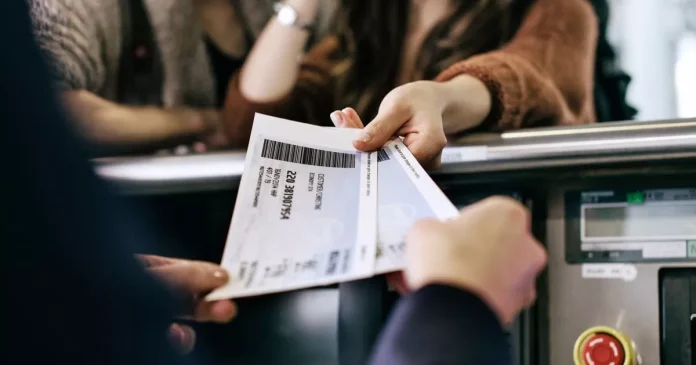Get ready to say goodbye to traditional boarding passes and check-in procedures, as air travel is on the brink of a revolutionary transformation. In a bid to streamline the flying experience, new proposals suggest that travellers could soon store their passport details right on their mobile devices.
The Times reports that this cutting-edge shift could take off within a mere three years. The concept of phasing out boarding passes and revolutionising the check-in process involves passengers downloading a “journey pass” to their smartphones when they book their flights. This digital pass would automatically refresh with any changes to the flight details.
Moreover, flyers could upload their passports to their phones and breeze through airport security using facial recognition tech. Additionally, the TSA has given the green light to 11 new items that can be carried in any size, and airline passengers will still be assured unencumbered travel.
Valérie Viale, director of product management at Amadeus, a leading travel technology firm, told The Times that these updates would be “the biggest in 50 years”.
She said: “The last upgrade of great scale was the adoption of e-ticketing in the early 2000s. The industry has now decided it’s time to upgrade to modern systems that are more like what Amazon would use.”
Viale highlighted that airlines have stuck with the same systems for decades to ensure consistency and interoperability across the sector. “At the moment, airlines have systems that are very siloed,” she remarked.
The traditional check-in process is set for a significant overhaul, as Viale shared: “There’s the reservation system that, when check-in opens, makes a handshake with a delivery system and says, ‘Here are my reservations, you can now deliver them’. In the future, it’ll be far more continuous and the journey pass will be dynamic.”
This comes as The Mirror warned airline loyalty points can actually expire after a certain amount of time, depending on which airline you have used, meaning frequent flyers might lose their points without even realising if they don’t manage to make time for a holiday.
Airline loyalty programs – or frequent flyer programs – allow members to accumulate points or miles when flying with a participating airline. These points can then be redeemed for various rewards, including discounts on future flights, upgrades, baggage allowances, and even access to airport lounges. Many airlines offer free enrolment on these schemes, making it easy for passengers to start collecting miles and earning rewards.
Several airlines including British Airways use the Avios reward scheme. The Avios site describes it as “a global reward currency you can spend on flights, hotels, car hire and more”.
BA explains its customers’ Avios points won’t expire as long as they “collect, spend, buy or share at least one Avios every 36 months”. The Airlines adds: “If you don’t collect or use your Avios at all for three years, your Avios will expire and be removed, so remember to take action before that time’s up.”
Aer Lingus also uses Avios through its AerClub scheme, and explained how points can expire in the same fashion as with BA. A spokesperson said: “Avios never expire as long as your AerClub account remains active.
“They will only expire after 36 months of inactivity (if no Avios are collected or spent during that time). Currently, AerClub has over 3 million members globally, and many are using their Avios to save on flights and enhance their travel experiences.”
At Reach and across our entities we and our partners use information collected through cookies and other identifiers from your device to improve experience on our site, analyse how it is used and to show personalised advertising. You can opt out of the sale or sharing of your data, at any time clicking the “Do Not Sell or Share my Data” button at the bottom of the webpage. Please note that your preferences are browser specific. Use of our website and any of our services represents your acceptance of the use of cookies and consent to the practices described in our Privacy Notice and Cookie Notice.

